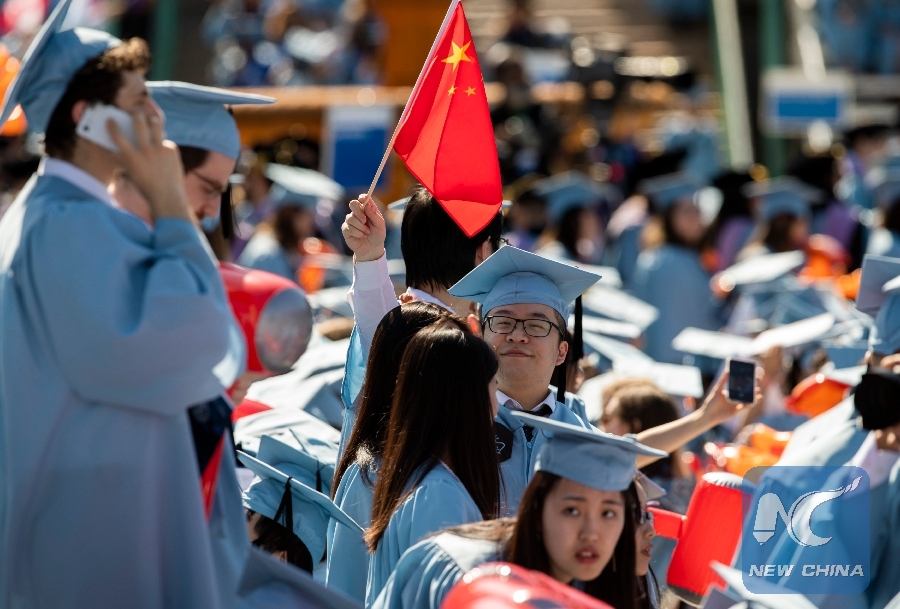
File Photo: Graduate students from China attend the Columbia University Commencement ceremony in New York, the United States, May 22, 2019. (Xinhua/Wang Ying)
CHICAGO, May 26 (Xinhua) -- U.S. universities will continue to be committed to China, said Brad Farnsworth, a senior executive of a leading U.S. education association.
Farnsworth, vice president of American Council on Education (ACE)'s Center for Internationalization and Global Engagement, made the remarks in response to the difficulties certain Chinese students and scholars have recently encountered when they applied for U.S. visas.
"We are definitely seeing a longer time to approve visas, and this has been documented. We have solid evidence to show that the length of time that it takes to approve visa is longer than it used to be," Farnsworth said in an interview with Xinhua recently.
"It's become more complicated politically," he said. "We've expressed concerns to our government about the slowdown in visa approvals ... We're in a challenging time now, but I don't think anybody's giving up."
ACE is a major coordinating body for U.S. colleges and universities, and a membership organization that mobilizes the higher education community to shape effective public policy and foster innovative, high-quality practice. It provides advice to over 1,700 college and university members on international strategy.
"We know from our survey research that China's the No. 1 country for establishing partnerships, our universities are saying China's their top priority," said Farnsworth.
Statistics tally with ACE's survey. There are over 1 million international students studying in the United States at present, with some 360,000 or one-third from China.
International students contributed 42 billion U.S. dollars to the U.S. economy in 2017, according to the U.S. Department of Commerce. One third of it would be 14 billion dollars.
"It's very substantial," said Farnsworth.
"This is a very difficult thing for our institutions because Chinese students have choices. They can go to Australia or New Zealand or to Europe," said Farnsworth. "There are many good universities all over the world."
If Chinese students have the impression that it is difficult to get a visa for the United States, maybe they will go to another country, he said. "This is now a global market for international students."
Farnsworth said there are many good reasons to have international students beyond the financial one: interaction between international and American students is very valuable for them to develop cultural skills and to learn more about other countries.
"When international students graduate, they in many cases go back to their countries and form this really valuable global network that can help the institutions for many years after they graduate," he added.
"We want our members to be successful and our members tell us that in order to be successful, they want international students on campus," he said.

